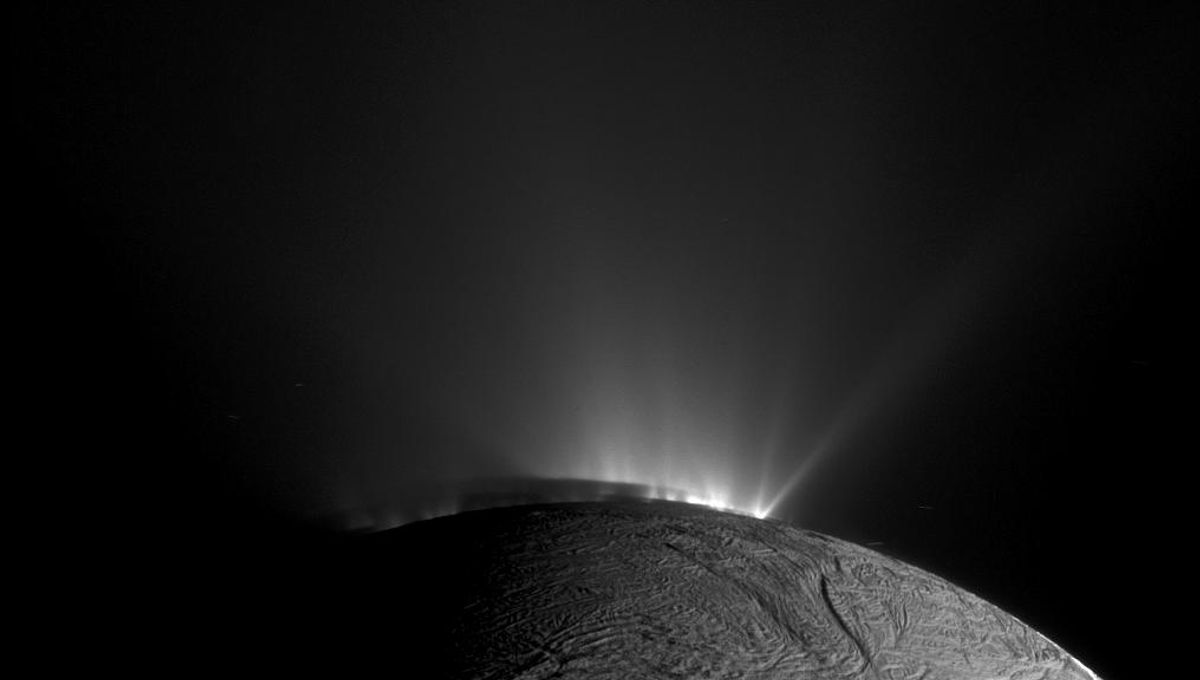
Saturn’s moon Enceladus has a deep ocean, with hydrothermal activity, and complex chemistry. These are excellent conditions for life to emerge, and researchers have added a bit more hope to the mix. A new analysis suggests that there might be more chemical energy within this distant moon than previously thought.
Enceladus releases plumes which were studied by the Cassini spacecraft. Despite Cassini having met a scheduled fiery death in Saturn a few years ago, the data is still being analyzed today. And it continues to reveal surprises in terms of possible molecules and how these might have formed in the deep ocean that exists on Enceladus.
In this new work, researchers announced the detection of several previously undiscovered molecules. Among them, there’s hydrogen cyanide. This is not just exciting for murder mystery fans everywhere – the molecule is considered a crucial step in the formation of amino acids, the building blocks of proteins.
“The discovery of hydrogen cyanide was particularly exciting, because it’s the starting point for most theories on the origin of life,” lead author Jonah Peter, a doctoral researcher at Harvard formerly from NASA’s Jet Propulsion Laboratory (JPL), said in a statement. “The more we tried to poke holes in our results by testing alternative models, the stronger the evidence became. Eventually, it became clear that there is no way to match the plume composition without including hydrogen cyanide.”
Previous analysis suggested that the chemical energy available in the ocean was related to the production of methane or methanogenesis. The selection of molecules seen in the plumes is consistent with being oxidized. If this is indeed the case, and oxidation is taking place, there’s a lot of chemical energy being released.
“If methanogenesis is like a small watch battery, in terms of energy, then our results suggest the ocean of Enceladus might offer something more akin to a car battery, capable of providing a large amount of energy to any life that might be present,” added JPL’s Kevin Hand, co-author of the study and principal investigator of the team that got the new results.
There is limited data from Cassini on the plumes of Enceladus. Researchers use statistical analysis to try and work out what’s in the plumes without overfitting the data. The new results, while promising, don’t translate to a certainty for life on Enceladus, but might allow us to test in the lab the exact conditions for those molecules to end up in a plume. And they give us insight into whether those conditions are suitable for life.
“Our work provides further evidence that Enceladus is host to some of the most important molecules for both creating the building blocks of life and for sustaining that life through metabolic reactions,” Peter stated. “Not only does Enceladus seem to meet the basic requirements for habitability, we now have an idea about how complex biomolecules could form there, and what sort of chemical pathways might be involved.”
A paper describing the results is published in Nature Astronomy.
Source Link: Alien Life On Enceladus Just Got More Likely